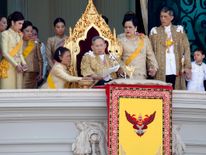Hannah Thomas-Peter, US Correspondent
Arguably, one of Hillary Clinton's biggest mistakes this election was saying this:
"You know, to just be grossly generalistic, you could put half of Trump's supporters into what I call the basket of deplorables. Right? The racist, sexist, homophobic, xenophobic, Islamophobic - you name it."
She quickly apologised.
But what she meant was lost in the buzz caused by what people heard, which was something along the lines of (and I paraphrase):
"Liberal elites like me will never understand or prioritise the needs and concerns of the vast majority of white working class America because we are instinctively contemptuous of poor, uneducated people."
Unfair? Yes.
Did it happen anyway? Yes.
The Clinton camp must have been tearing their expensive hair out.
Mr Trump knows a political gift when he sees one, and the effect was electric at campaign events across the country.
Without a hint of irony, the billionaire property mogul started arriving on stage to the theme of Les Miserables.
Memes populated Instagram and Facebook feeds.
"Deplorables" became a rallying cry, a call to arms, and a very effective way of selling T-shirts.
At a recent rally in Philadelphia, a woman wearing a hat that read "Deplorable and Proud" said to me: "They don't like me and my cheap clothes and my cigarettes and what I believe in? I've found a man who does."
"We are done!", another woman joined in. "Fed up with the Establishment and that snob Hillary Clinton. What has she done for us?"
Mrs Clinton's tone deaf misstep has been so damaging because it further exposed one of the deepest fault lines running through this country, and put her on the wrong side of it.
Mr Trump's increasingly erratic and possibly failing campaign has managed to unite a relatively disparate group of people who are fed up with being told that what they believe is somehow offensive or politically incorrect.
Yes, some of them are racist, sexist bigots.
I've spoken to lots of them.
But most people who've embraced the "deplorables" name are simply fed up residents of middle America.
They might come from struggling former industrial towns.
They might come from union families and have only ever voted Democrat.
But they will tell you they feel tired, frustrated and marginalised in a country their families helped to build.
They cannot shake the feeling that they have not and never will benefit from the global recovery following the 2008 financial crisis.
The shiny new jobs in tech and science are not for them.
Heroin stalks their streets.
The school system is a future-defining lottery.
They don't read The New York Times or drink matcha lattes.
They do worry about crime, immigration and identity.
They distrust and disbelieve encouraging statistics about employment and rising incomes.
Now, suddenly, they are a force to be reckoned with, considered and courted, and their effect on politics will remain whether Mr Trump wins or not.
If Mrs Clinton finds herself elected, she's got a lot of work to do to win them over. That's a good thing.





